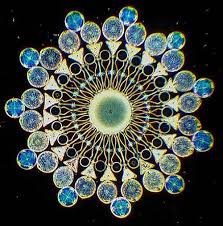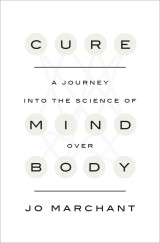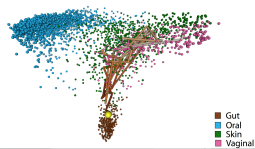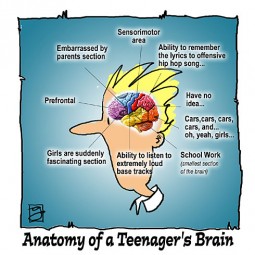
Host: Beth Bennett
Producer: Beth Bennett
Engineer: Maeve Conran
Executive Producer: Shelley Schlender
Listen to the show:
Podcast: Play in new window | Download (Duration: 28:01 — 25.6MB)
Subscribe: RSS
The KGNU Science Show

Host: Beth Bennett
Producer: Beth Bennett
Engineer: Maeve Conran
Executive Producer: Shelley Schlender
Listen to the show:
Podcast: Play in new window | Download (Duration: 28:01 — 25.6MB)
Subscribe: RSS
 Host Beth Bennett interviews Bob Crifasi, author of A Land Made of Water (starts at 4’55”). Bob works in water management and planning and is an environmental scientist with over 25yr experience. He was the Water Resources Administrator for the city of Boulder’s Open Space and Mountain Parks Dept. He has served on board of directors of 11 ditch companies and as the president of several, supervising all aspects of ditch operation.
Host Beth Bennett interviews Bob Crifasi, author of A Land Made of Water (starts at 4’55”). Bob works in water management and planning and is an environmental scientist with over 25yr experience. He was the Water Resources Administrator for the city of Boulder’s Open Space and Mountain Parks Dept. He has served on board of directors of 11 ditch companies and as the president of several, supervising all aspects of ditch operation.
Hosts: Beth Bennett, Alejandro Soto
Producer: Beth Bennett
Engineer: Maeve Conran
Additional contributions: Shelley Schlender
Executive Producer: Shelley Schlender
Listen to the show:
Podcast: Play in new window | Download (Duration: 25:14 — 23.1MB)
Subscribe: RSS
 Mind+Body Science (start time: 4:52): If you’ve ever struggled to decide whether to see a Western conventional doctor or an “alternative” medical practitioner for ailments ranging from a compromised immune system to irritable bowel syndrome, you are aware of a deep divide between the two camps. Dr. Jo Marchant, a British geneticist and science writer, has delved into the science and politics of mind-body connections in her new book. It’s called Cure: A Journey into the Science of Mind Over Body. She discusses this journey with host Susan Moran. (We played snippets from the interview during the recent pledge-drive show. Thanks to you, listener-members, for your support! And thanks, Crown Publishers, for allowing KGNU to give copies of Cure to those who pledged during the show.
Mind+Body Science (start time: 4:52): If you’ve ever struggled to decide whether to see a Western conventional doctor or an “alternative” medical practitioner for ailments ranging from a compromised immune system to irritable bowel syndrome, you are aware of a deep divide between the two camps. Dr. Jo Marchant, a British geneticist and science writer, has delved into the science and politics of mind-body connections in her new book. It’s called Cure: A Journey into the Science of Mind Over Body. She discusses this journey with host Susan Moran. (We played snippets from the interview during the recent pledge-drive show. Thanks to you, listener-members, for your support! And thanks, Crown Publishers, for allowing KGNU to give copies of Cure to those who pledged during the show.
Headlines (0:56 – 4:30) 1) Analyzing the molecular signature from our body’s microbial communities might be used in the future to link suspects to crimes definitively. 2) New research explores whether molecules behave like predatory animals when it comes to foraging for food.
Hosts: Beth Bennett, Susan Moran
Producer: Beth Bennett
Engineer: Beth Bennett
Headline Contributor: Beth Bennett
Executive Producer: Joel Parker
Listen here to the show:
Podcast: Play in new window | Download (Duration: 24:45 — 22.7MB)
Subscribe: RSS

The Glucocorticoid Receptor (starts at 5:30): We interview Dr. Miles Pufall who studies the glucocorticoid receptor, a protein in cell membranes that is the target of drugs used to treat a variety of conditions from asthma to cancer. Binding cortisol causes the receptor to be moved to the nucleus where it turns on (or off) numerous genes. One of the big questions is how does each cell type ‘know’ which genes should be targeted?
Hosts: Beth Bennett, Joel Parker
Producer: Beth Bennett
Engineer: Beth Bennett
Additional Contributions: Joel Parker, Susan Moran
Executive Producer: Joel Parker
Listen to the show:
Podcast: Play in new window | Download (Duration: 25:38 — 23.5MB)
Subscribe: RSS

Electric Car Road Trips (starts 3:42): We go on a road trip with How on Earth’s Shelley Schlender to see how all-electric vehicles are exceeding “range anxiety” by driving coast to coast, all on electricity. Along the way we talk with Boulder Nissan’s Nigel Zeid about regional plans to help more drivers “plug in” and with Hunter Lovins, head of Natural Capitalism Solutions.

Renewable Energy Nation (starts 11:53): Joel Parker talks live with NOAA scientist Alexander MacDonald and Christopher Clack, a mathematician at the University of Colorado-Boulder. They have developed a model that demonstrates how the entire U.S. can run on solar and wind power–with existing technologies, with no batteries, and at lower cost than today’s prices–within 15 years. For more information, see this video and these animations of:
U.S. Wind Power Potential
U.S. Solar Power Potential
U.S. Power Flow
(added 2018 January 1 : see this article https://futurism.com/macro-grids-future-renewable-energy/)
Hosts: Joel Parker, Beth Bennett
Producer: Shelley Schlender
Executive Producer: Joel Parker
Engineer: Shelley Schlender
Additional Contributions: Susan Moran
Listen to the show:
Podcast: Play in new window | Download (Duration: 24:23 — 22.3MB)
Subscribe: RSS
 Using the Microbiome to Determine Time of Death (starts at 5:40): This week on How on Earth, we speak with Jessica Metcalf, an evolutionary biologist, who studies bacteria, specifically the microbiome. One of her research interests is using molecular biology to address basic hypotheses about the role of microbes in corpse decomposition. The time since death, or postmortem interval, also known as (PMI), is important for criminal investigations because it can lead to the identification of the deceased and validate alibis. PMI is critical to both forensic science and pop culture (e.g. TV shows Bones, CSI). Recently she co-authored a paper published in Science, describing how various species of the microbiome can be used to accurately and repeatedly determine the post-mortem interval.
Using the Microbiome to Determine Time of Death (starts at 5:40): This week on How on Earth, we speak with Jessica Metcalf, an evolutionary biologist, who studies bacteria, specifically the microbiome. One of her research interests is using molecular biology to address basic hypotheses about the role of microbes in corpse decomposition. The time since death, or postmortem interval, also known as (PMI), is important for criminal investigations because it can lead to the identification of the deceased and validate alibis. PMI is critical to both forensic science and pop culture (e.g. TV shows Bones, CSI). Recently she co-authored a paper published in Science, describing how various species of the microbiome can be used to accurately and repeatedly determine the post-mortem interval.
Host: Beth Bennett
Producer: Beth Bennett
Engineer: Maeve Conran
Executive Producer: Joel Parker
Listen to the show:
Podcast: Play in new window | Download (Duration: 25:10 — 23.0MB)
Subscribe: RSS
 What You Can Do About Global Warming (starts at 5:20): We interview Craig Hover, author of A World to Come Home To: Ending Global Warming in Our Lifetime. Craig is a licensed professional engineer with more than 30 years of engineering, project and facilities management, financial services and consulting. In his book he lays out a comprehensive vision of implementing sustainable strategies for reducing carbon emissions and reversing the current trends in climate change.
What You Can Do About Global Warming (starts at 5:20): We interview Craig Hover, author of A World to Come Home To: Ending Global Warming in Our Lifetime. Craig is a licensed professional engineer with more than 30 years of engineering, project and facilities management, financial services and consulting. In his book he lays out a comprehensive vision of implementing sustainable strategies for reducing carbon emissions and reversing the current trends in climate change.
Host: Beth Bennett
Producer: Beth Bennett
Engineer: Maeve Conran
Additional contributions: Shelley Schlender
Executive Producer: Beth Bennett
Listen to the show:
Podcast: Play in new window | Download (Duration: 24:33 — 22.5MB)
Subscribe: RSS

Brains (starts at 4:35) This week on How on Earth we interview Professor Marie Banich, from the University of Colorado here in Boulder. Dr Banich uses cutting edge methodologies, particularly structural and functional MRI, to examine the role of the prefrontal cortex, as well as other brain regions, in executive function. Today she tells us about work that was recently funded by NIH to characterize how these systems change over the course of development.
Hosts: Beth Bennett and Joel Parker
Producer: Beth Bennett
Engineer: Joel Parker
Executive Producer: Beth Bennett
Listen to the show:
Podcast: Play in new window | Download (Duration: 24:06 — 22.1MB)
Subscribe: RSS

GMOs (start time 5:35) An interview with Dr Sharon Collenge, an ecologist at the University of Colorado. Dr Collenge is an advocate of using new genetic technologies to make slight modifications to plant genomes which can increase yield, protect against disease and reduce pesticide use.
Host: Beth Bennett
Producer: Beth Bennett
Engineer: Maeve Conran
Additional contributions: Joel Parker, Beth Bennett
Executive Producer: Beth Bennett
Listen to the Show:
Podcast: Play in new window | Download (Duration: 24:46 — 22.7MB)
Subscribe: RSS

This week on How on Earth, we speak with Dr Paula Hoffman, a neuropharmacologist – she’s scientist who studies what drugs do in the brain- who works on the genetics of alcohol and other drugs of abuse. Paula reviews the action of alcohol on different neurotransmitter systems of the brain then describes some of the genetic issues which predispose people to risk for becoming alcoholics. Finally she talks about research done in her lab which has resulted in preliminary understanding of genetic networks involved.
Host: Beth Bennett
Producer: Beth Bennett
Engineer: Maeve Conran
Executive Producer: Susan Moran
Listen to the show:
Podcast: Play in new window | Download (Duration: 24:08 — 22.1MB)
Subscribe: RSS